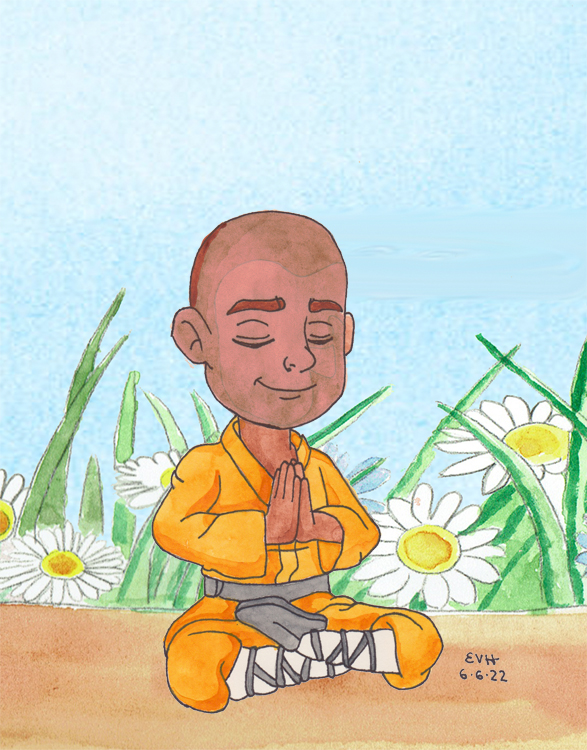
Jataka 330
Sīlavīmaṃsa Jātaka
The Test of Virtue (redux)
as told by Eric Van Horn
originally translated by H.T. Francis and R.A. Neil, Cambridge University
originally edited by Professor Edward Byles Cowell, Cambridge University
This story is somewhat roughly told. It helps to read the other referenced Jātakas, 86 and 290. Nonetheless, this is s brief but poignant story with three parts. My personal favorite is the first one in which the Bodhisatta compares sense desires to a piece of meat being fought over by birds. It is a simple but powerful simile. But the whole story is a powerful and poetic way to describe the unsatisfactoriness of sense desires and the true happiness to be gained from peace.
“Power on earth.” The Master told this story when he was at Jetavana. It is about a brahmin who was always proving his virtue. Two similar stories have been told before (Jātaka 86 and Jātaka 290). In this case the Bodhisatta was the family priest of the King of Benares.
In testing his virtue, for three days he took a coin from the royal treasurer’s board. They informed against him as a thief, and when he was brought before the King, he said:
Power on earth beyond compare,
Virtue owns a wondrous charm,
Putting on a virtuous air
Deadly snakes avoid all harm.
After thus praising virtue in the first stanza, he gained the King’s consent and adopted the life of a recluse. Now a hawk seized a piece of meat in a butcher’s shop and darted up into the air. The other birds surrounded him and struck at him with their feet, claws, and beaks. Unable to bear the pain, he dropped the piece of meat. Another bird seized it. It, too, in a similar manner, was hard pressed and let the meat fall. Then another bird pounced on it, and whoever got the meat was pursued by the rest, and whoever let it go was left in peace. The Bodhisatta on seeing this thought, “These desires of ours are like pieces of meat. To those that grasp at them is sorrow, and to those that let them go is peace.” And he repeated the second stanza:
While the hawk had meat to eat,
Birds of prey pecked at him sore,
When perforce he dropped the meat,
Then they pecked at him no more.
The recluse then left the city. In the course of his journey he came to a village, and by evening he was welcomed into a certain man’s house. Now there was a female slave there named Piṅgalā. She had made an arrangement with a man, saying, “You should come at such and such a time.” After she had bathed the feet of her master and his family, and after they went to bed, she sat on the threshold, looking out for the arrival of her lover. The first and the middle watch of the night passed while she kept repeating to herself, “Now he will be coming.” But at daybreak, losing hope, she said, “He will not come now,” and she lay down and fell asleep. The Bodhisatta—seeing this happen—said, “This woman sat ever so long in the hope that her lover would come, but now that she knows he will not come, in her despair, she sleeps peacefully.” And with the thought that hope in a defiled world brings sorrow, despair brings peace, he uttered the third stanza:
The fruit of hope fulfilled is bliss,
How differs loss of hope from this?
Though dull despair her hope destroys,
Lo! Piṅgalā calm sleep enjoys.
On the next day he left that village. He entered a forest and saw a recluse seated on the ground absorbed in meditation. He thought, “Both in this world and in the next there is no happiness greater than the bliss of meditation.”And he repeated the fourth stanza:
In this world and in worlds to be
Nothing surpasses peaceful joy.
To stillness calm a devotee,
Himself unharmed, will none annoy.

Figure: Nothing surpasses peaceful joy.
Then he went into the forest and adopted the reclusive life of a sage. He developed the higher knowledge born of meditation and became destined to be reborn in the Brahma World.
The Master here ended his lesson and identified the birth: “At that time Devadatta was Kālabāhu, Ānanda was Poṭṭhapāda, and I was Rādha.”
